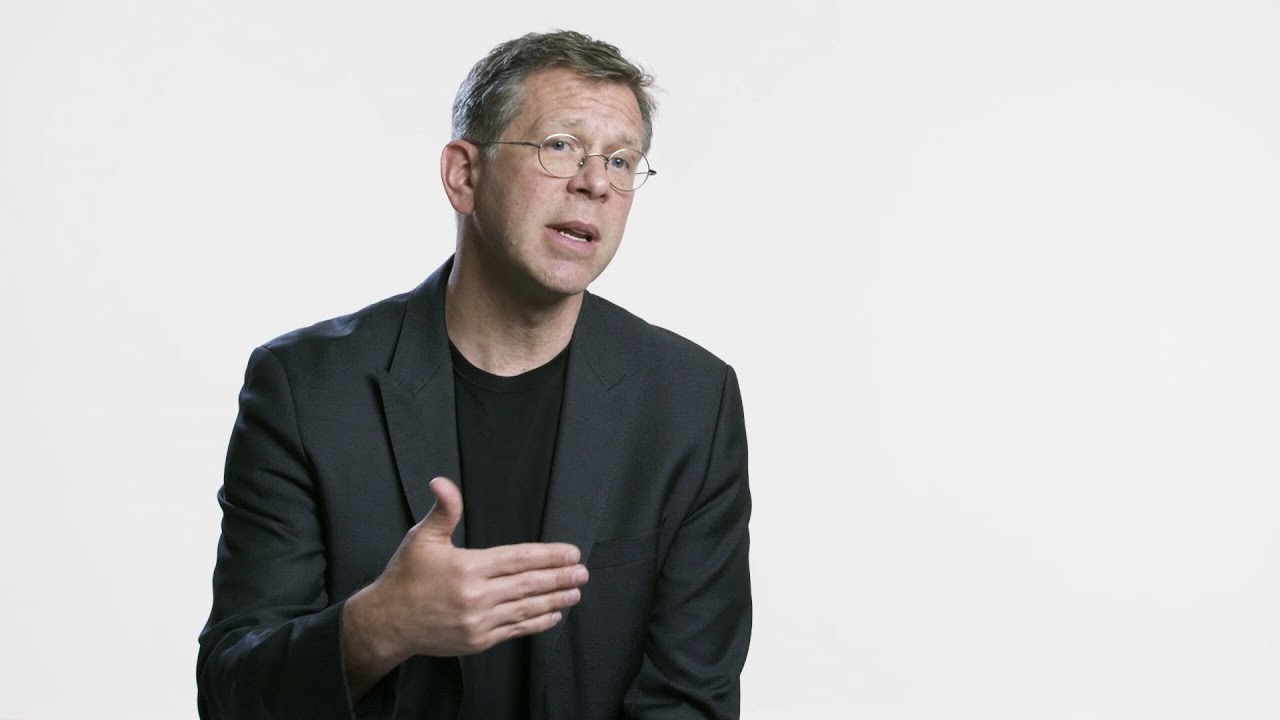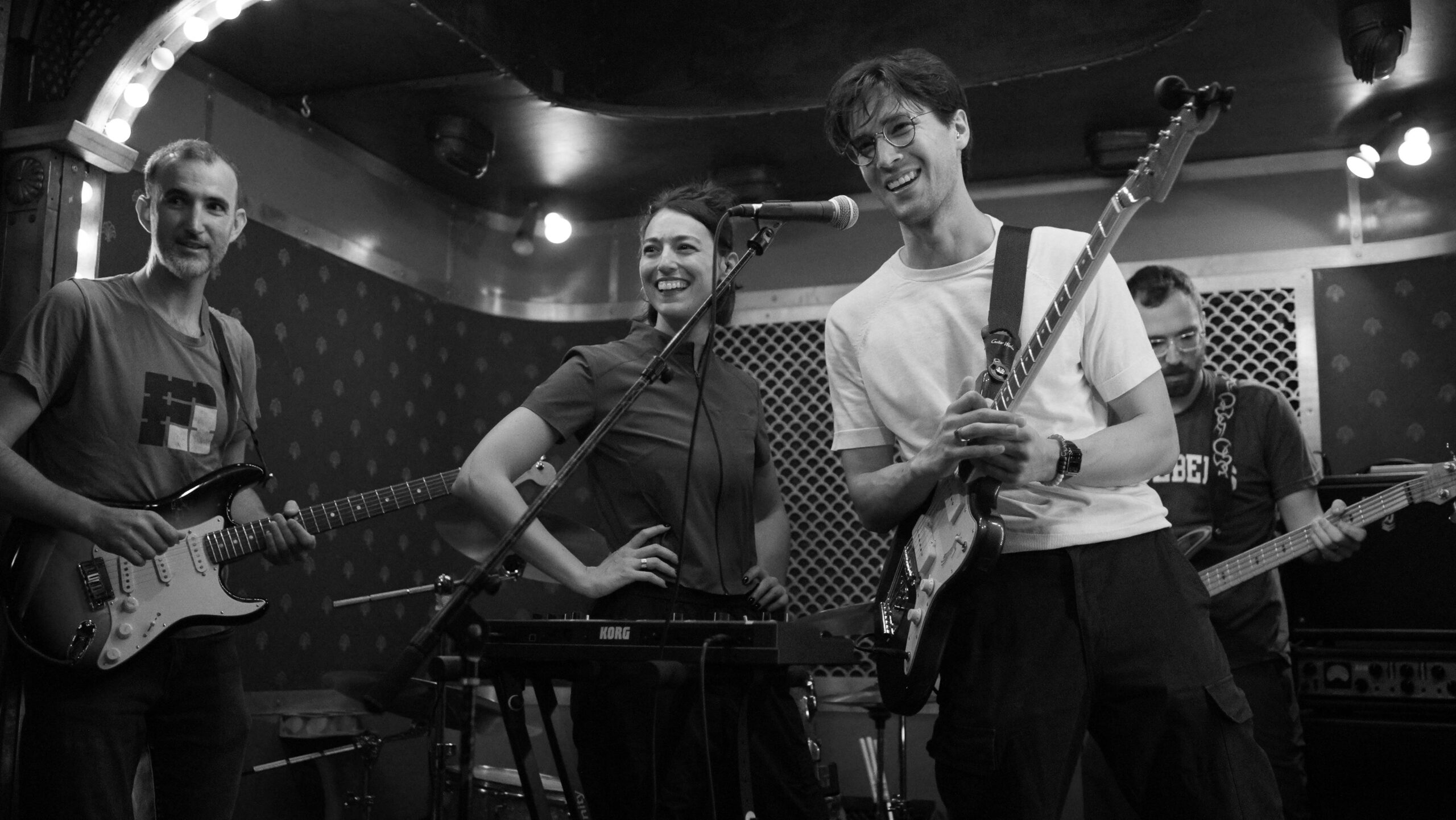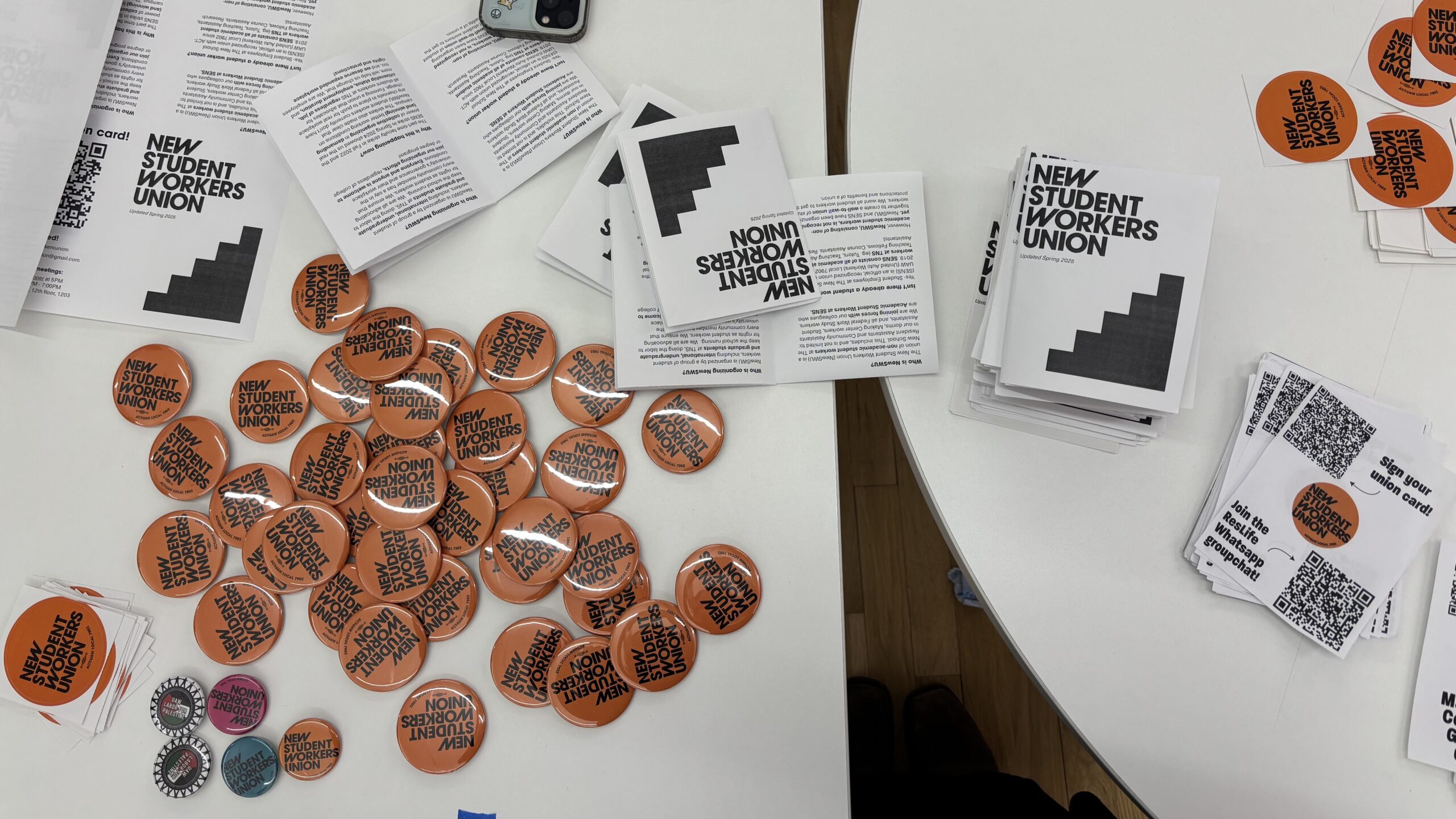This article was updated Oct. 14 at 4:59 pm
Joel Towers, the university’s newly appointed president, delivered his first in-person address to the community last Thursday in the 66 W. 12th St. Johnson/Kaplan Hall auditorium.
Throughout the 45-minute welcome speech, 10 audience members from a crowd of roughly 200 in-person attendees periodically rose from their seats, interrupting Towers to voice their inquiries. The questions primarily regarded The New School’s divestment from weapons and surveillance manufacturers tied to the Israeli government, as well as concerns related to the spring semester student demonstrations.
Thirteen minutes into Towers’ address on the historical and metaphorical significance of the Johnson/Kaplan Hall building, an audience member stood up and said, “Using your previous experience in divesting from fossil fuels, how do you plan to use that experience to contribute towards divestment from arms manufacturers like Boeing and Raytheon—”
Towers interjected, stating there would be time for questions after he spoke, and attempted to resume his talk as planned. The two continued to talk over one another, the audience member insisting their question be answered. Another individual from the crowd urged the risen audience member to sit down.
Moments later, a second audience member rose, voicing concerns over the previous New York Police Department presence on campus, leading to the arrests of 45 people. Towers joked that “we are in a place of performance,” prompting laughter from the crowd. The risen audience member asked Towers how he would feel being “brutalized on a campus that you pay a lot of money to go to,” referencing worry for the treatment of Black and transgender students. Towers continued to deliver his speech on the “critical issues” the university has “always been willing to take up throughout its history,” expressing that the answer may be discerned from the content of his address.
A third audience member inquired Towers about allegations of anti-semitism on campus “despite no evidence,” wondering how Towers planned to “rectify” the students who were punished as a result of the alleged harassment. Towers did not respond, instead transitioning his talk to The New School’s prominent role in civil rights movements. This topic was soon met with a fourth audience member who questioned the ethics of marketing the university on social justice, “while benefiting economically from the genocide in Gaza.”
Soon after, a fifth audience member referenced the university’s divestment from South Africa in the mid-1980s during apartheid, wondering why similar action has not been taken against organizations funding the Israeli government. Towers asked the crowd to consider how discourse may take place positively during the academic year, “Will it begin with a kind of mutual respect?”
An already standing audience member responded, “If you can’t even say the word genocide, [or] say the word Palestine, then we’re not on the same talking ground.”
Towers answered by referencing his recent statement and emphasizing the vitality of respect and willingness to hear ideas. “The world is a complicated and broken place. I do not deny that,” he said. “But how you make change in the world matters as much as the change you make.”
The back and forth continued and a sixth audience member alleged that they had been assaulted at the annual Parsons Benefit by a guest this past May, asking why the university sides “with abusers over students protesting genocide.”
A seventh audience member stated Louisa Solomon, a former rabbi with the Jewish Culture Club at TNS was fired over the summer. The audience member alleged that Solomon was let go due to her involvement in “anti-genocide actions across the city.” Solomon was under a one year contract with the university for the 2023-2024 academic year, which was not renewed for the current academic year, and was not explicitly fired from her role.
Towers stated that although he does not “discount the passion” of the audience, there is a “place and time” to address these issues.
An eighth audience member rose with a question in regards to lingering student conduct charges against student demonstrators from the spring 2024 semester, a ninth questioned the university’s remaining endowment investments in the Chevron Corporation, and a 10th urged Towers to address the issues presented by protesters in more explicit terms. He did not respond directly, though referenced “unresolved issues” that had been presented to him, inciting laughter from the crowd.
In closing remarks, Towers moved on to address the ongoing bargaining with union groups New Student Workers Union (NewSWU). He stated that he intends to promptly resolve bargaining, and that he has instructed his team to contact students and establish a bargaining unit.
According to Brian Allen, an ACT-UAW Local 7902 union organizer, the groups have not yet heard from Towers or the university administration as of last Thursday.
Following the address, Towers told the New School Free Press that he intends to hold town hall meetings with the purpose of back-and-forth dialogue. “We can do better as a university in how we engage with each other,” he said. “As soon as one side of a perspective becomes the only perspective, learning is lost.”
A previous version of this article stated that Louisa Solomon, the former rabbi with the Jewish Culture Club at TNS, was fired over the summer. Further information provided by Rabbi Solomon and The New School, showed that Solomon’s contract was solely for the 2023-2024 school year academic year, and was allegedly in discussions to be renewed. Solomon’s contract was ultimately decided not to be renewed by The New School. This article has been updated to reflect the correction.
A previous version of this article stated that the crowd consisted of roughly 70. Further information from The New School showed that the in-person crowd was 200 people. This article has been updated to reflect this correction.
A previous version of this article stated SENS-UAW was apart of ongoing bargaining along with NewSWU. SENS-UAW came to a bargaining agreement in March 2024, and have since been assisting NewSWU with their ongoing bargaining.








Leave a Reply